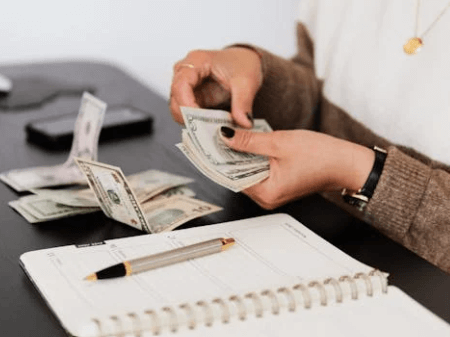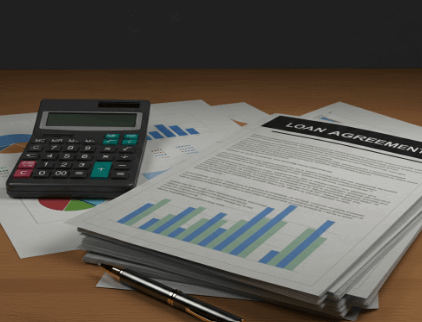When considering the cost to sell a house in Florida, it’s crucial to understand the various expenses involved in the process. On average, homeowners spend around 8-10% of the home’s sale price on agent commissions, repairs, staging, and closing fees. For instance, if you’re selling a house for $300,000, you could expect to pay approximately $24,000 to $30,000 in selling costs. Steve Daria and Joleigh, renowned real estate investors and house buyers for cash, offer invaluable expertise to navigate these costs efficiently. They provide guidance and a potential cash offer, simplifying the selling process. Understanding the cost to sell a house in Florida is essential for maximizing your property’s value and ensuring a smooth transaction. If you’re looking to explore your options and want a stress-free experience, contact Steve Daria and Joleigh to book a free discussion today. Let their expertise and insight guide you through the selling process with confidence.
Key Points
- Real Estate Agent Commissions: One of the most significant expenses when selling a house in Florida is the real estate agent commission, which usually lands between 5% and 6% of the sale price. The fee is divided between the buyer’s and seller’s agents, and although it represents a significant cost, an experienced agent can assist in securing a more favorable sale price.
- Repairs and Renovations: Homeowners often need repairs or renovations to enhance the property’s appeal before listing a house. Depending on the home’s condition, these costs vary widely, but investing in necessary improvements can result in a higher selling price.
- Staging Costs: Home staging is an important cost that can make a property more appealing to potential buyers. The cost to stage a house in Florida can range from a few hundred to several thousand dollars, but it often leads to a quicker sale and potentially a higher offer.
- Closing Costs: Sellers also need to budget for closing costs, typically about 1% to 3% of the sale price. These costs include title insurance, attorney fees, and various taxes, which are essential for transferring property ownership.
- Potential Hidden Fees: Besides the more obvious costs, sellers should be aware of hidden fees such as mortgage prepayment penalties or unexpected inspection findings. Understanding all possible expenses is crucial to avoid surprises and to ensure a smooth selling process.
How does the Florida real estate market affect selling costs?
The Florida real estate market can significantly impact the cost to sell a house in Florida, with various market conditions influencing selling expenses.
When supply and demand are imbalanced, it can affect how quickly homes sell and at what price, influencing the cost to sell.
For example, in a seller’s market where demand is high and supply is low, you can sell your home fast and for a higher price, which might help cover costs like agent commissions.

Conversely, a buyer’s market might require more competitive pricing strategies, possibly leading to longer selling times and additional expenses such as extended staging costs or price reductions.
Interest rates are also a contributing factor; lower rates can boost buyer activity, while higher rates might slow the market, affecting the investment needed to make your home appealing to buyers.
Economic factors, such as employment rates and local economic health, can influence buyer confidence and purchasing power, further affecting selling strategies.
Understanding these market trends is crucial for optimizing your selling strategy and minimizing the overall cost to sell a house in Florida.
By staying informed about the Florida real estate market, sellers can make better decisions to ensure a smooth and cost-effective transaction.
Get An Offer Today, Sell In A Matter Of Days
What is included in the average cost of selling a home in Florida?
When considering the cost of selling a house in Florida, it’s important to understand the various expenses involved.
One of the largest costs is the real estate agent commission, which typically accounts for 5% to 6% of the sale price.
Moreover, homeowners frequently need to allocate funds for repairs or renovations to enhance the property’s appeal to potential buyers.
Staging costs can also add up, as professional staging can enhance a home’s presentation, potentially speeding up the sale and increasing the final offer.
Closing costs usually range from 1% to 3% of the sale price and include title insurance, attorney fees, and taxes.
Other possible expenses include pre-inspection fees or paying off any remaining balance on the mortgage.
All these costs can accumulate, making it crucial for sellers to budget accordingly.
Understanding the cost to sell a house in Florida is essential for planning a successful selling strategy and ensuring a smooth transaction.
Are there any hidden costs I should be aware of when selling my home in Florida?
- Unexpected Repairs: One of the most common hidden costs when selling a home is unexpected repairs. Even if your home appears in good condition, buyer inspections can reveal issues that require immediate attention and financial outlay.
- Pre-Listing Inspections: While not mandatory, opting for a pre-listing inspection can uncover potential problems early. This proactive approach helps avoid surprises but also adds to upfront costs that sellers need to consider.
- Home Staging and Cleaning: To make your home more appealing, investing in professional staging and deep cleaning can be necessary. These efforts enhance the property’s presentation but can add unplanned expenses to your selling budget.
- Seller Concessions: In a competitive market, sellers may be asked to cover some buyer expenses, such as closing costs, which can be a hidden cost if not initially anticipated. These concessions can significantly affect your net proceeds from the sale.
- Holding Costs: If your home takes longer to sell than expected, you might incur additional holding costs. These can include ongoing mortgage payments, utilities, and maintenance, often overlooked in initial budgeting.

What are common closing costs for sellers in Florida?
When selling a house in Florida, it’s essential to consider the typical closing costs, as they form a significant part of the overall cost of selling a home in Florida.
A major expense is title insurance, which safeguards both the buyer and the lender against any title defects and generally costs from several hundred to a few thousand dollars.
Sellers might also incur attorney fees if they hire legal assistance for the transaction, which can help ensure a smooth process but adds to the costs.
Transfer taxes, which are state or local taxes imposed on the transfer of property, are another typical closing expense sellers must budget for.
These costs depend on the property’s location and price, so it’s important to get an accurate estimate early.
Additionally, sellers may encounter fees for recording documents or other administrative costs.
Understanding these closing costs is crucial because they directly impact the total cost to sell a house in Florida, so being prepared can help prevent last-minute financial surprises and ensure a successful sale.
What factors should I consider when setting a selling price for my Florida home?
- Market Conditions: It’s crucial to understand the current real estate market in Florida, as it greatly influences pricing strategies. Factors such as supply and demand, interest charges, and economic trends can dictate whether you should price your home competitively or aim for a higher value.
- Home Condition: The overall condition of your home can significantly impact its selling price. Homes that are well-maintained, with updated features and minimal repairs needed, typically command higher prices than those requiring extensive renovations.
- Location: The location of your house plays a pivotal role in determining its value. Proximity to amenities, local schools, and neighborhood safety are all important considerations that can enhance or detract from your home’s appeal.
- Comparable Sales: Reviewing recent sales of similar homes in your area, known as comparables or “comps,” provides a benchmark for setting a realistic selling price. These comparisons help ensure your pricing aligns with market expectations and attracts prospective buyers.
- Unique Features: Consider any unique or desirable features your home may possess that could justify a higher price point. Whether it’s a stunning view, energy-efficient upgrades, or a spacious layout, highlighting these can set your home apart in the competitive Florida market.
How do I ensure a smooth transaction when selling my house in Florida?
To facilitate a seamless transaction when selling your house in Florida, begin by familiarizing yourself with the costs associated with the process.
Preparing your home by making necessary repairs and staging it effectively can make it more appealing to buyers, potentially reducing time on the market.
Keeping up with current market conditions is key to pricing your home right and drawing in serious buyers.
Budgeting for all associated costs, like agent commissions and closing fees, helps avoid surprises and manage financial expectations.
Engaging seasoned experts like Steve Daria and Joleigh, renowned real estate investors and house buyers for cash, can significantly ease the selling process.
Their experience can guide you through the complexities of the transaction, ensuring that you maximize your return while minimizing stress.
To leverage their expertise and guarantee a successful sale, consider contacting Steve Daria and Joleigh for personalized advice and support.
Planning carefully and relying on expert guidance can help you navigate the cost to sell a house in Florida efficiently.
**NOTICE: Please note that the content presented in this post is intended solely for informational and educational purposes. It should not be construed as legal or financial advice or relied upon as a replacement for consultation with a qualified attorney or CPA. For specific guidance on legal or financial matters, readers are encouraged to seek professional assistance from an attorney, CPA, or other appropriate professional regarding the subject matter.

